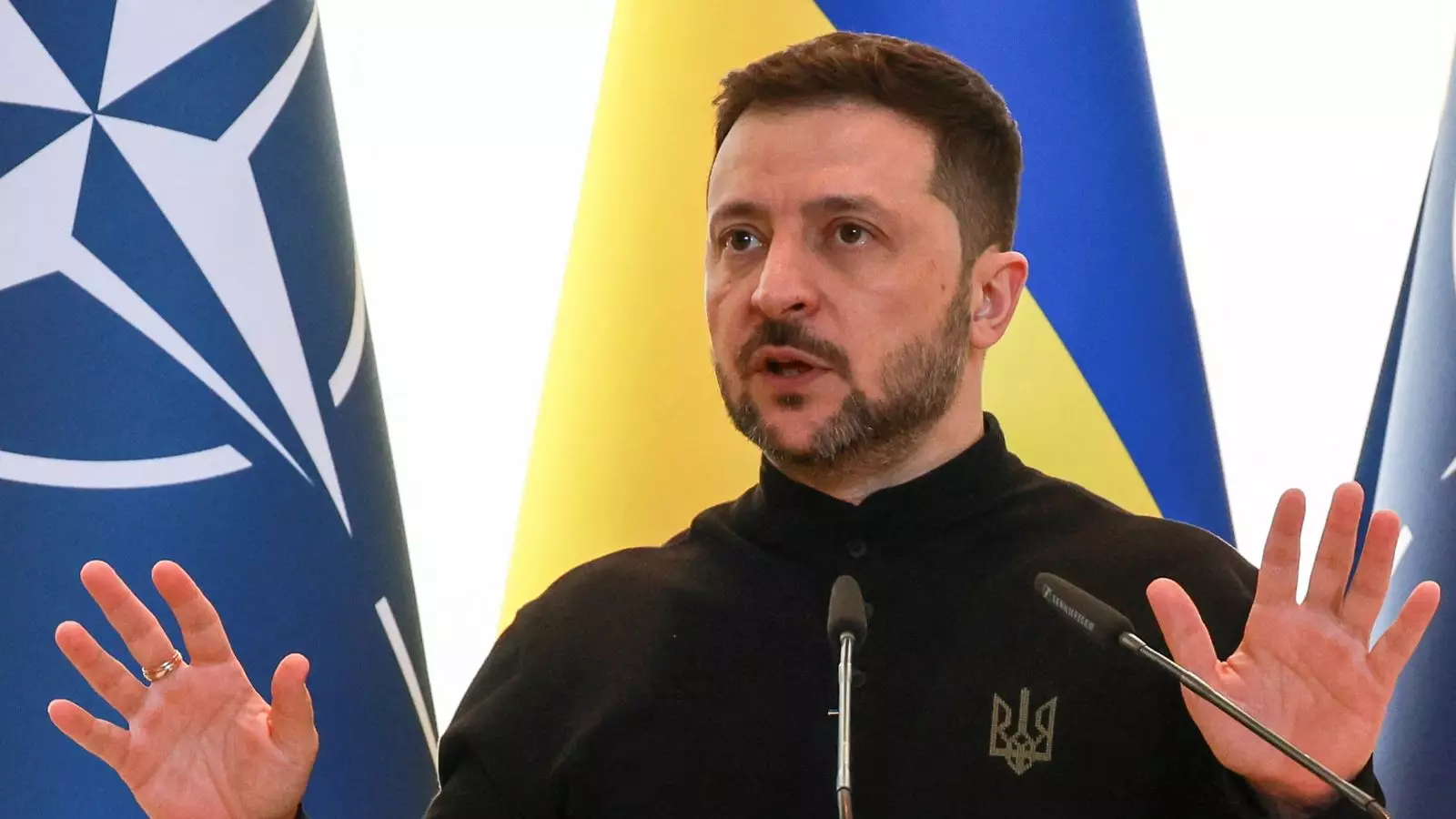As the grim shadows of war continue to loom over Ukraine, the latest exchange between Sir Keir Starmer and Ukrainian President Volodymyr Zelenskyy unveils a dance of diplomatic rhetoric that raises more questions than assurances. Amidst the rubble of trust eroded under the relentless bombardment of Russian aggression, one cannot help but perceive a disconcerting pattern—not just of insincerity, but of a troubling complacency that has plagued the international community. With calls for a ceasefire echoing across the chambers of power, it feels as though we are witnessing a tragic play, where the characters shine in their roles while the audience is left to wrestle with the complexities of reality.
Starmer expressed “iron-clad support” for Ukraine, a phrase that, while buoying to hear, often feels hollow in the face of ongoing bloodshed. How many times must we hear language steeped in promise yet devoid of action before it becomes merely a strategic shield for political leaders? Starmer’s overtures of support may seem noble, but the insatiable appetite of war doesn’t relinquish its grip merely because someone promises solidarity; it requires tangible strategies and unwavering commitment—a far cry from hollow assurances.
Pursuit of a ‘Just Peace’ Amidst a Quagmire of Distrust
The mention of a “just and lasting peace” is commendable but remains ephemeral without a foundation built on legitimacy. Zelenskyy’s ambition for a full ceasefire alongside a respeted peace process sounds valiant, yet it mirrors an optimistic naïveté that seems increasingly out of touch with the realities at play. How can one advocate for dialogue when the specter of betrayal looms over any commitments made by Russia? The Easter truce, instead of marking a hopeful turning point, acts as a glaring reminder of how quickly trust can be shattered. The mutual accusations of ceasefire violations expose the fragility of such agreements and speak volumes about the entrenched war mentality that complicates any discussion around peace.
Vladimir Putin’s sudden openness to bilateral talks suggests a tactical move rather than a genuine willingness to foster stability. The notion that Russia was willing to grant a ceasefire—one which they reportedly violated over 2,000 times—appears less about craftsmanship in diplomacy and more about manipulating the narrative on a global platform. Are we to consider this an olive branch when history has taught us that its branches are often laced with thorns?
The Dangerous Allure of False Hope in Geopolitical Bargaining
Equally concerning is the role played by external actors like the United States, with Donald Trump taking center stage and predicting imminent agreements without acknowledging the intricate layers of the conflict. His optimistic proclamations sound like empty platitudes—professions of hope laden with the unshakeable undercurrent of self-interest. When aspirations for prosperity become entangled with war negotiations, the risk of obfuscating real issues grows; complex humanitarian crises are distilled into soundbites aimed at feeding political narratives rather than nurturing peace.
The dance of diplomacy often masquerades as earnestness, but when scrutinized closely, the relentless cycle of broken promises and self-serving maneuvers becomes painfully apparent. The mirage of “big business” permeating from a resolution only underscores how the actual stakes of human lives are too often eclipsed by the allure of profits and political expediency.
Where Do We Go from Here?
As discussions swirl and the fate of millions hangs precariously in the balance, the world watches with bated breath. However, as citizens invested in humanitarian values, we must discern the deeper truths that lie beneath the surface. Genuine diplomacy must be grounded in accountability and transparency, far beyond the banal exchange of pleasantries between world leaders.
Starmer and Zelenskyy’s conversations about peace should not be seen through rose-colored glasses; rather, they must be a clarion call for an elevated commitment to negotiate in good faith. The prize should never just be a “peace,” but a transformative resolution that honestly acknowledges the suffering and complexities of those living in the warzone. The world deserves leaders who not only chant slogans of support but who genuinely strive to dismantle the machinery of war that has engulfed Ukraine in its catastrophic embrace. It is time to demand authenticity in this quest for peace—no more facades; the people of Ukraine deserve better.

Leave a Reply